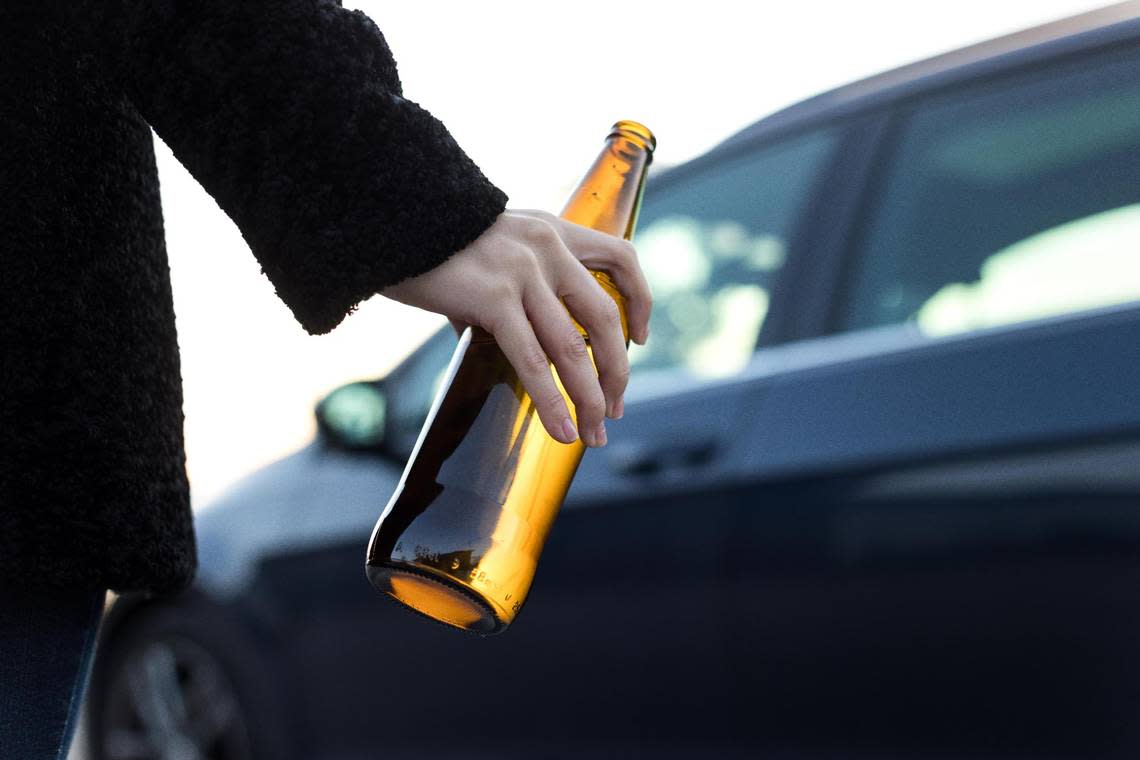Can you drink alcohol in a car in IL if someone else is driving? What state law says

It generally goes without saying that driving while under the influence is a crime. States have been cracking down on drunk driving for decades, including Illinois, where the legal limit is set at the federally recommended 0.08 blood alcohol content.
Despite that, alcohol is a factor in nearly 40% of all highway fatalities in Illinois, according to financial services company Bankrate, which cited drunk driving data from the National Highway Traffic Safety Administration.
However, what may be less clear to some Illinois drivers is whether it’s OK for a passenger in their vehicle to drink alcohol. Here’s a look at open container laws in Illinois and what they say about the matter.
What does Illinois law say about open alcohol containers in a vehicle?
Under the Illinois Revised Statutes Chapter 625 Sec. 11-502, drivers are prohibited from having open alcoholic beverages in the passenger areas of their vehicles.
Specifically, the statute provides “no driver may transport, carry, possess or have any alcoholic liquor within the passenger area of any motor vehicle upon a highway in this State except in the original container and with the seal unbroken.”
A similar provision applies to passengers in a vehicle, “no passenger may carry, possess or have any alcoholic liquor within any passenger area of any motor vehicle upon a highway in this State except in the original container and with the seal unbroken.”
The Illinois Liquor Control Act of 1934 defines the term “alcoholic liquor” broadly. It encompasses “alcohol, spirits, wine and beer and every liquid or solid, patented or not, containing alcohol, spirits, wine or beer and capable of being consumed as a beverage by a human being.”
What are the exceptions?
There are a few limited exceptions explicitly laid out in Illinois law. Here’s a look at a few, however, this list is not exhaustive and other laws may come into play, depending on the circumstances.
Passengers riding in limos and charter buses are one exception as long as these types of vehicles are being used as they ordinarily would be. Motorhomes and mini motorhomes are also included. However, the driver is still prohibited from consuming or having any alcoholic liquor in or about the driver’s area. Subsection C of Section 11-502 provides, “any evidence of alcoholic consumption by the driver shall be prima facie evidence of such driver’s failure to obey this Section.”
Section 6-33 of the Illinois Liquor Control Act of 1934 also allows for restaurants and wineries licensed to sell alcoholic beverages to let patrons remove one unsealed and partially consumed bottle of wine for off-premise consumption. The patron must have purchased a meal and consumed some of the wine at the restaurant. The wine must be placed in a transparent “one-time use tamper-proof bag” and include a dated receipt of purchase. Wine that is resealed in this way must be stowed in the vehicle’s trunk or in some other area that is not a passenger or driver area.
How does Illinois’ open container laws compare to other states?
According to the National Conference of State Legislatures and as of June 2021, six states — Connecticut, Delaware, Missouri, Rhode Island, Tennessee and Virginia — prohibit drivers from consuming alcohol, however, the laws in those states do not extend to passengers in a vehicle.
Except for one state, Guam, Puerto Rico and the District of Columbia, all states have laws barring the consumption or possession of open alcohol containers in a motor vehicle, the NCSL explains.
The organization adds that Mississippi and the Virgin Islands do not have statutes regulating the consumption or possession of alcohol in motor vehicles.

